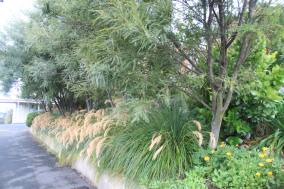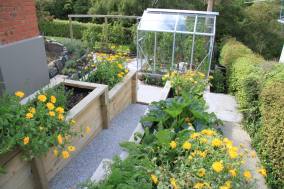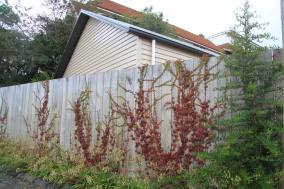FAQs
Frequently Asked Gardening Questions
Q. How often should I water?
A. If the weather has been dry, make sure you give your garden and lawns a deep soaking twice a week. This encourages deeper roots on your plants that will help them through dry periods. Light, daily waterings keep the feeder roots near the surface which dry out faster.
Having mulch over your gardens will also help keep the soil moist for longer. The best mulch for this is pea straw, oat husk mulch, fine bark, compost, fallen leaves and grass clippings.
Q. I'm thinking about removing a tree but I'm not sure if it's a good idea.
A. Before getting out the axe (always a bad move) consider the health of the tree, its age and how much larger it will grow. Are the roots going to be a problem long-term for underground services and paths/driveways? Is the tree too close to power lines or buildings? Is the tree 'framing' a view or blocking it?
Some trees can be saved with occasional arbour work to keep them in check and attractively shaped. Improving the soil around trees and removing lawns growing over their roots can do a lot to improve their health.
Sometimes removing a tree clears the way for a more thoughtful planting scheme or freeing up the area for other uses.
If in doubt or you need ideas for a new tree or planting, get professional help. Then you can give the area new life for a very long time without having to change it again.
Q. My lawn looks terrible, what can I do?
A. Grass grubs damage your lawn and show up as patchy areas of dead grass: usually after March and through winter. They can also attack the roots of other plants including pot plants. Infested turf and pasture turns yellow and dies off, leaving a dead mat.
Apply granules or 'prills' to control insects and grubs in lawns and soils from February to late autumn. Sprinkle evenly on lawns and gardens then water in.
Q. How do I keep from getting sick when working in the garden?
A. Soil is rich with living organisms beneficial to plants which generally cause no harm to animals or people. Soil does however contain some organisms that can be harmful to people, if simple precautions are not taken.
One common type is Legionella bacteria, which can sometimes be found in bags of potting mix and can cause legionnaires’ disease in a few people. Best practice advice is to strictly follow the instructions on the bag which include wearing a dust mask. If you develop flu-like symptoms consult a medical professional.
Your garden is also likely to be lively with bees which are perfectly harmless unless you disturb them in their work. They die when they sting you so they need a bit of incentive! A few other insects can give you a bit of a bite but unless you are allergic to such things, the pain will disappear quite quickly.
Q. Buying plants are expensive, how can I get them more cheaply?
A. Raising plants from seed is cost-effective and gives greater choices than buying plants from garden centres. This is ideal for vegetables, annuals and some herbs.
If you have a portable cloche then use this to start your seeds off in a clear area of garden. Planting is usually done at twice the depth of the seed, but during dry weather it should be a little deeper.
Watering the soil thoroughly before sowing will help germination and then, when seedlings appear, gentle watering will get plants growing steadily.
Transplant seedlings when they have the third set of leaves growing and are starting to get more robust.
Q. How can I fit more plants into less space?
A. Intercropping or using an area for more than one crop is a good way to make maximum use of a small space. Fast cropping lettuces may be grown between slower growing plants. Garlic and herbs grown around the roses, basil and capsicums among the tomatoes in the hothouse are just two common examples.
Q. My garden seems to be suffering from a fungal attack. What can I do?
A. Fungal disease in the garden starts as the weather heats up and your plants become heat-stressed and hungry.
The best control is a healthy soil with plenty of organic matter. A drip-feed watering system is best during dry spells. Also, keep your plants in good health with the right fertiliser.
Commercial fungal sprays used regularly are effective and won't affect visiting insects. Alternative natural sprays include Neem Oil, Aspirin or Bicarbonate of Soda.
If you have other questions, a consultation with Richard Forbes of Richard Forbes Gardening might be your solution. Contact Richard to find out how this works.



